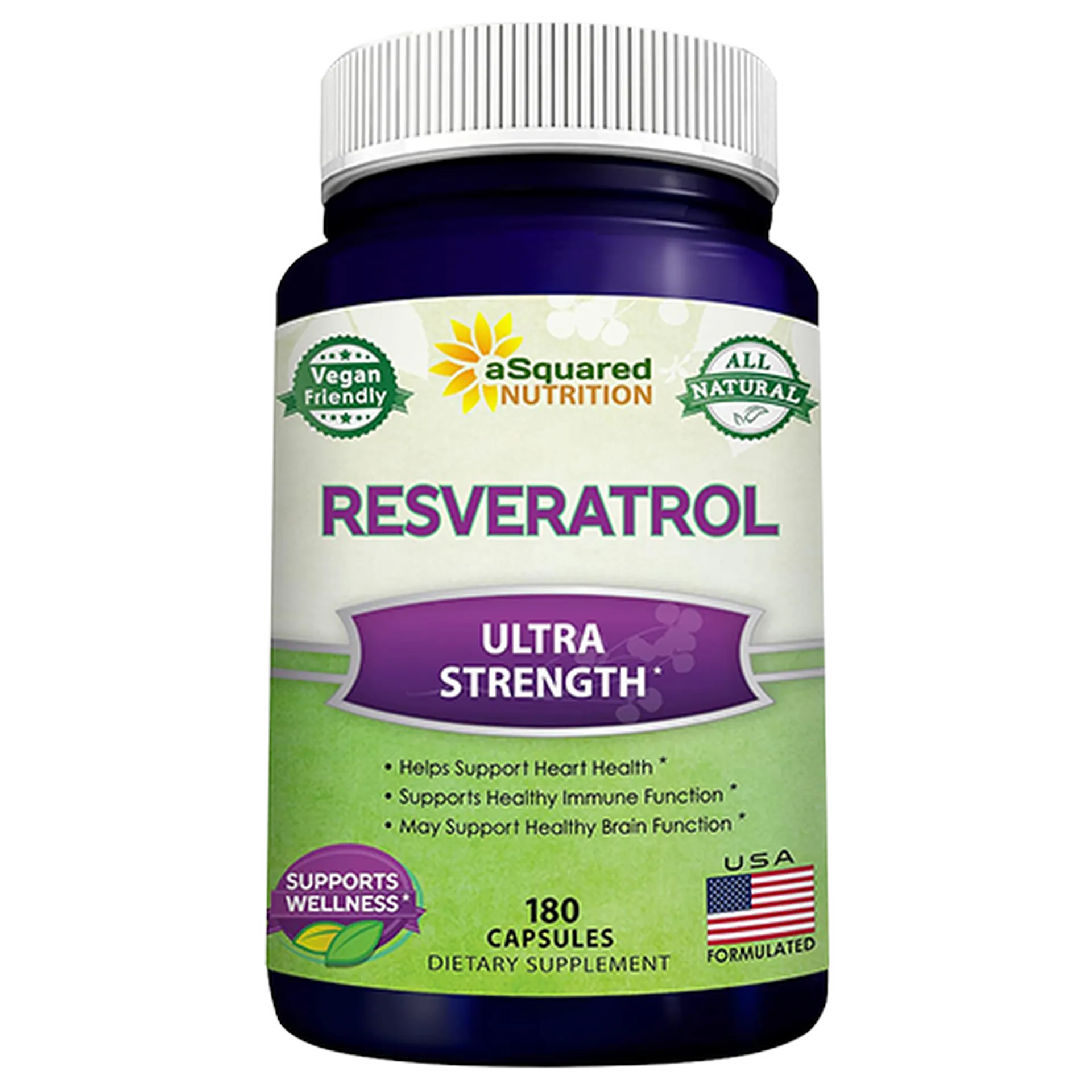Resveratrol and Longevity: Unlocking the Secrets of the "Wine Molecule"
High-trust buyer’s-guide-style piece that teaches readers exactly how to evaluate quality and avoid common pitfalls.
By Supplement Reports Team
August 29, 2025
16 min read
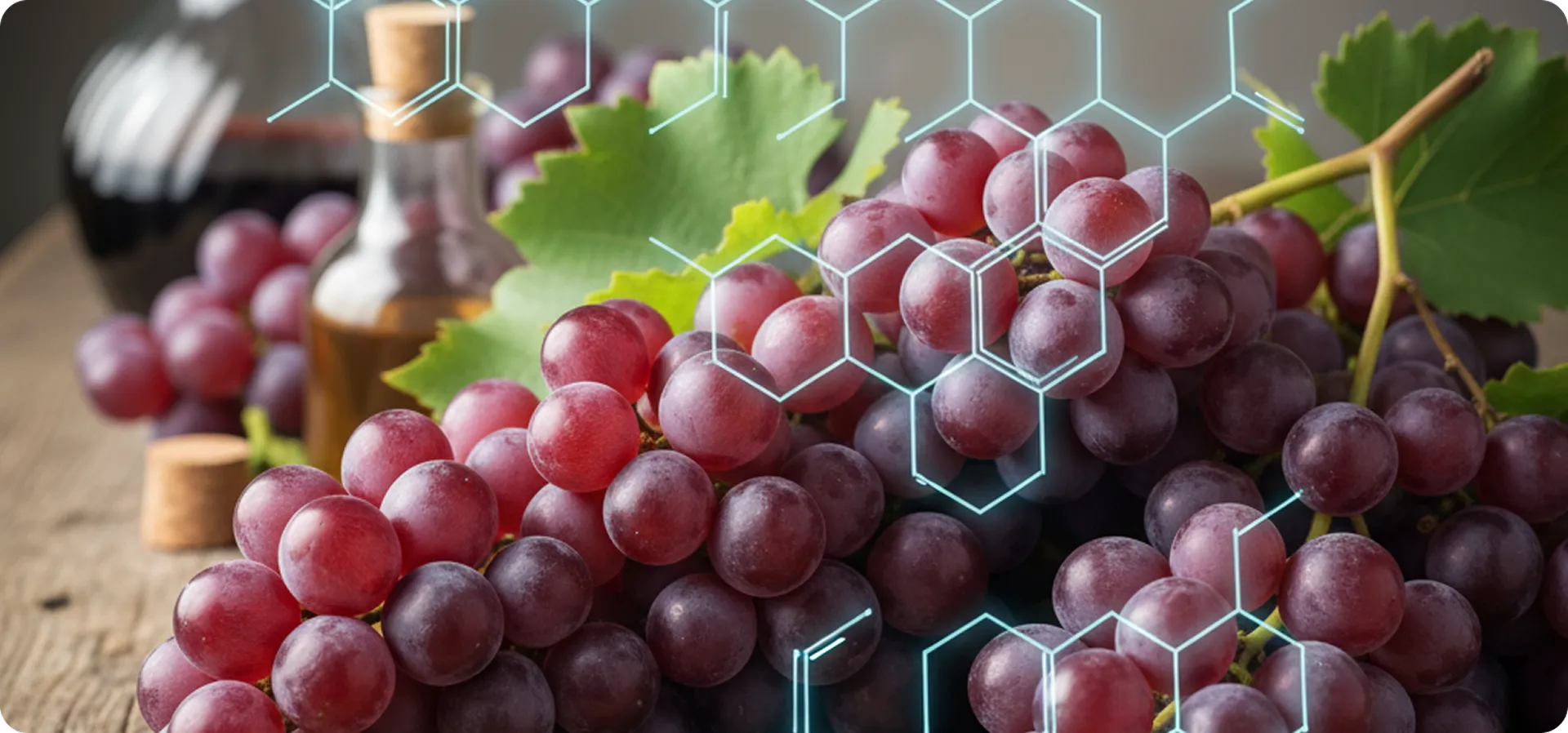
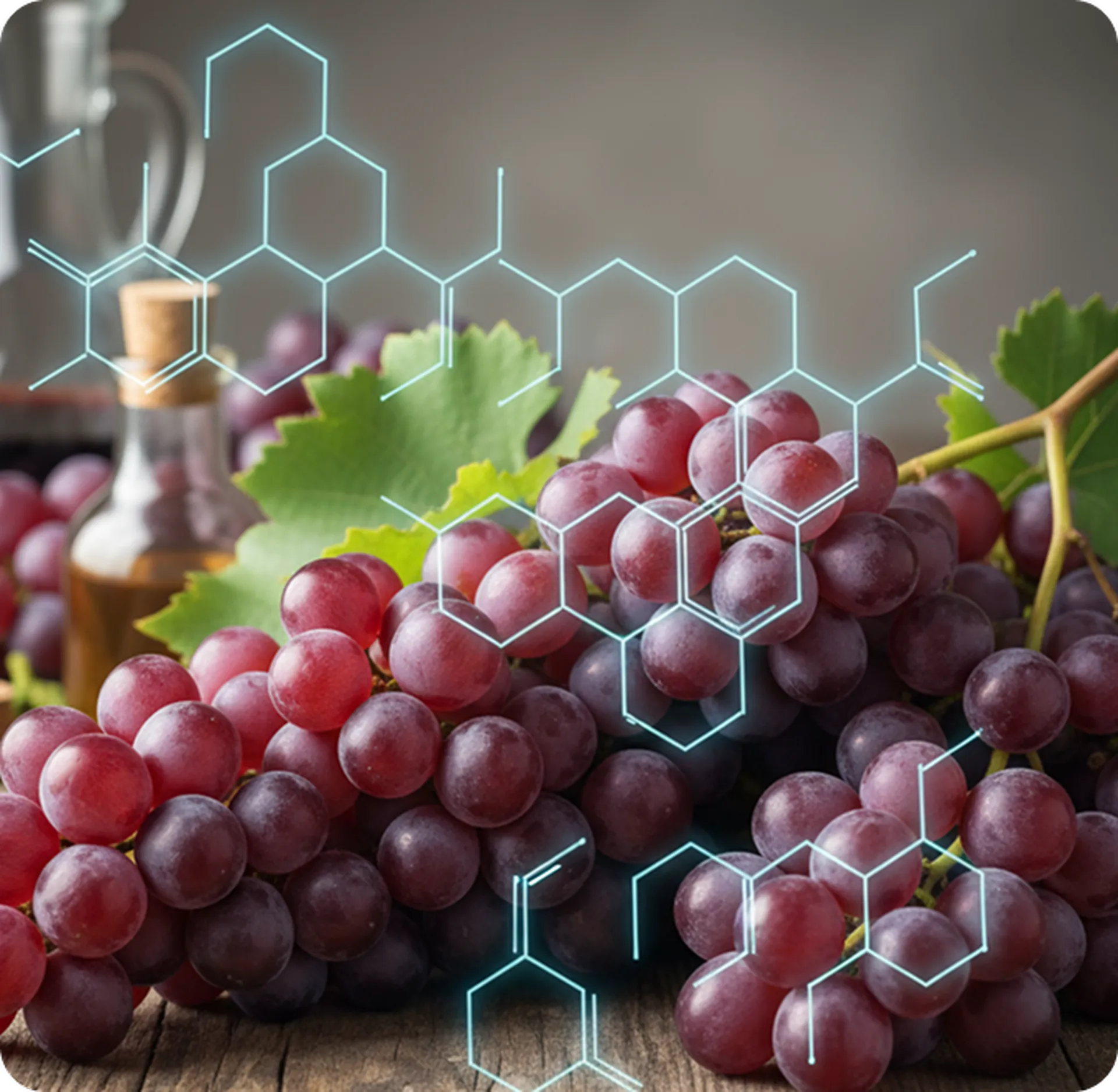
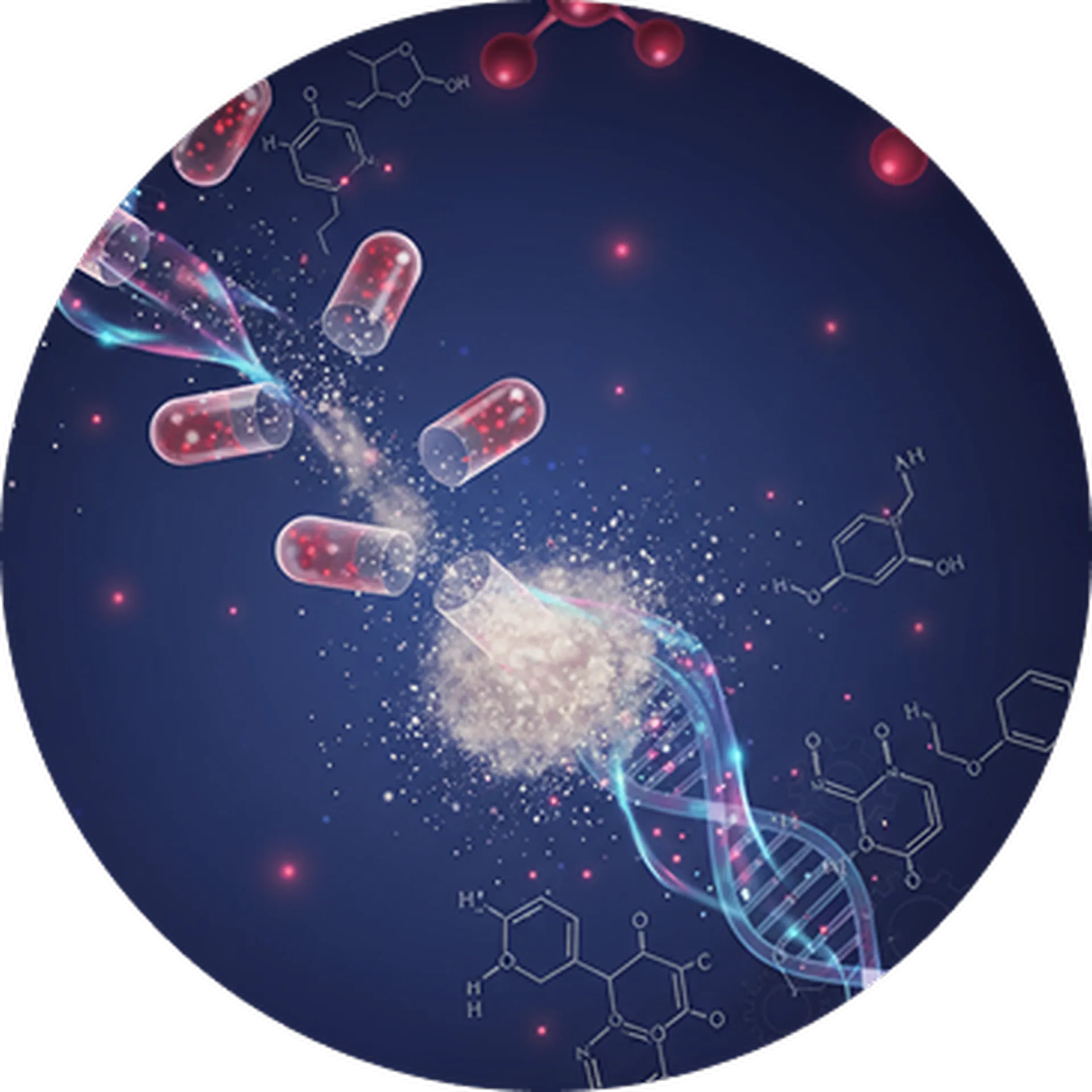
Introduction: Why Resveratrol Has Captured Attention in Anti-Aging Research

The journey of resveratrol from a relatively obscure plant compound to a star of longevity research began in the 1990s when scientists started investigating the molecular mechanisms behind caloric restriction, one of the most robust interventions known to extend lifespan across multiple species. What they discovered was that resveratrol could potentially mimic some of the beneficial effects of eating fewer calories, without the need for actual dietary restriction.
This discovery sparked a revolution in aging research, leading to thousands of scientific studies exploring resveratrol’s effects on cellular health, metabolism, and longevity. The compound’s ability to activate certain proteins called sirtuins, which play crucial roles in cellular maintenance and stress response, positioned it at the forefront of what researchers now call “longevity science.”
Today, resveratrol represents more than just a component of red wine – it embodies our growing understanding of how specific nutrients can influence the aging process at the cellular level. As we delve deeper into the science behind this remarkable compound, we’ll explore not just what resveratrol is and where it comes from, but how it works within our bodies to potentially support healthy aging and cellular vitality.
What Is Resveratrol? – Understanding This Remarkable Plant Compound
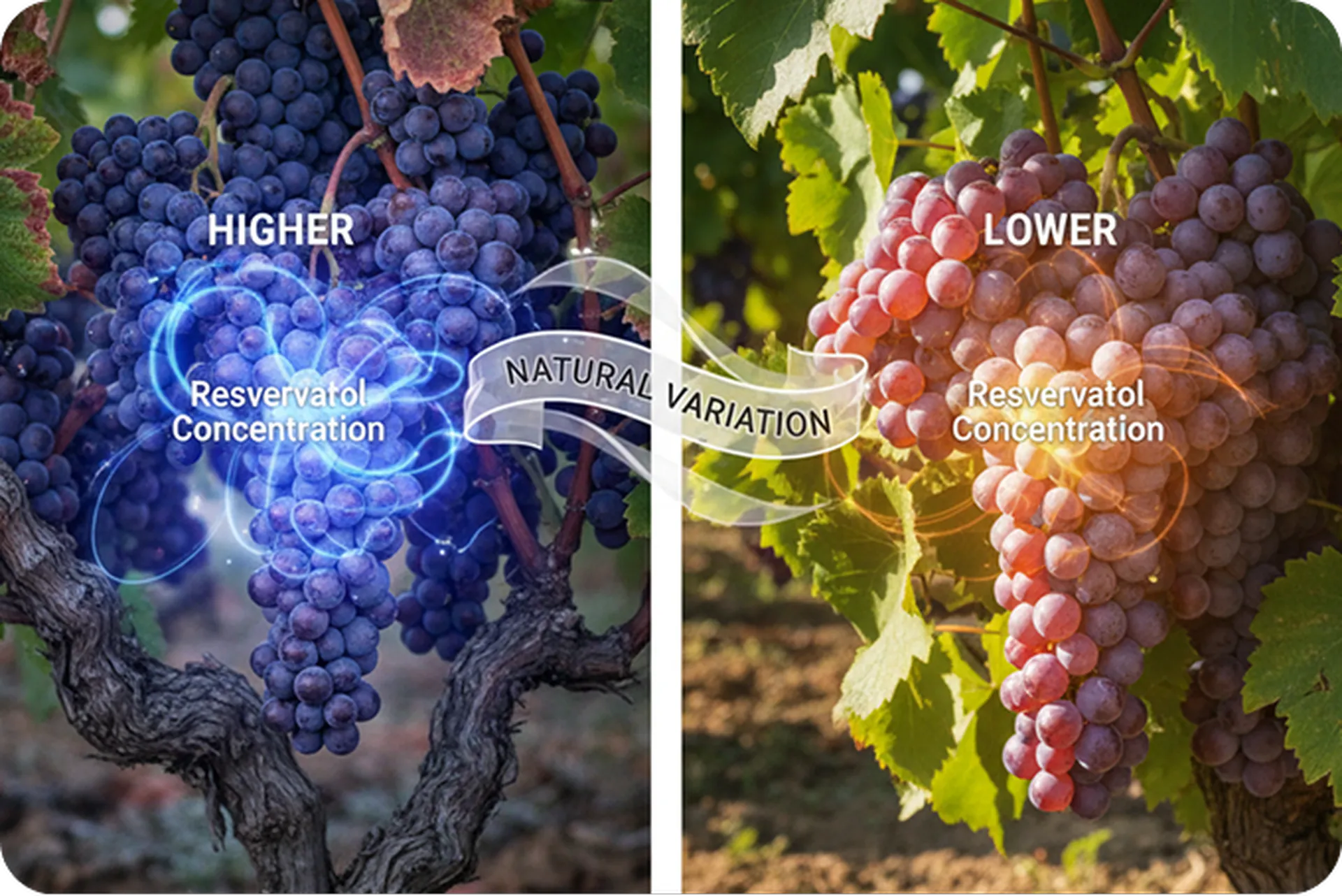
The molecular structure of resveratrol is relatively simple yet elegant. It exists in two main forms: trans-resveratrol and cis-resveratrol, with the trans form being the more biologically active and stable version. This structural simplicity belies its complex biological activities, which researchers are still working to fully understand.
While red grapes and red wine are the most famous sources of resveratrol, this compound is actually found in a variety of plants. Red grape skins contain the highest concentrations, which is why red wines typically contain more resveratrol than white wines – the fermentation process for red wine includes extended contact with grape skins, allowing the resveratrol to be extracted into the wine.
Beyond grapes, resveratrol can be found in several other food sources. Peanuts, particularly the red skins, contain modest amounts of this compound. Various berries, including blueberries, cranberries, and mulberries, also provide resveratrol, though in smaller quantities than grape skins. Dark chocolate and cocoa products contain trace amounts as well.
One of the richest natural sources of resveratrol is Japanese knotweed (Polygonum cuspidatum), an invasive plant species that has been used in traditional Chinese medicine for centuries. This plant contains such high concentrations of resveratrol that it has become the primary source for many dietary supplements, providing a more concentrated and cost-effective alternative to grape-derived resveratrol.
The concentration of resveratrol in these natural sources can vary significantly based on growing conditions, processing methods, and storage. Grapes grown in cooler climates or those subjected to fungal pressure tend to produce higher levels of resveratrol as a protective response. Similarly, organic farming practices, which may expose plants to more natural stressors, can sometimes result in higher resveratrol content.
The Science of Longevity – How Resveratrol Supports Cellular Health
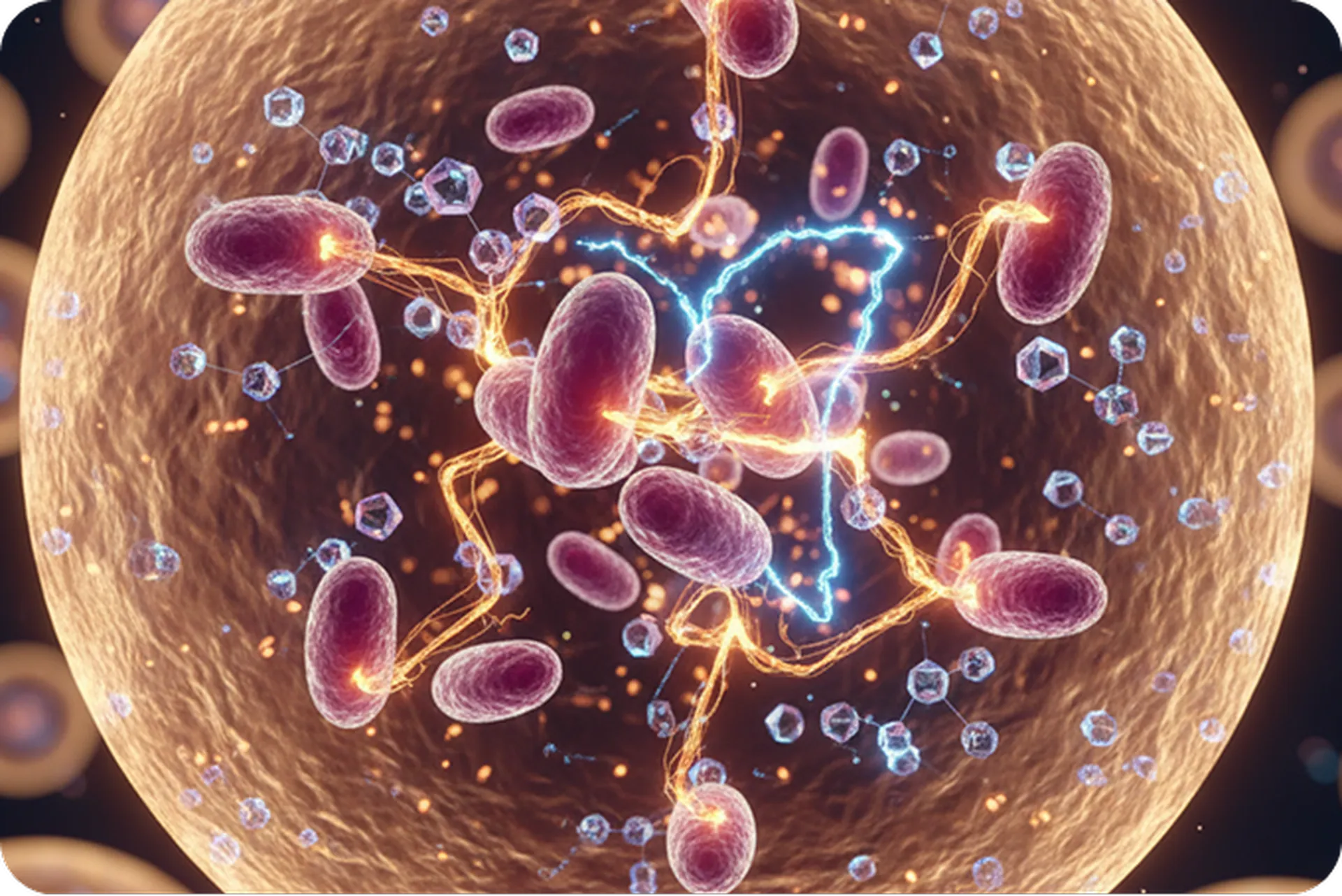
When activated, SIRT1 initiates a cascade of cellular processes that mirror many of the beneficial effects observed during caloric restriction. This includes improved mitochondrial function, enhanced cellular stress resistance, and more efficient DNA repair mechanisms. The activation of SIRT1 by resveratrol essentially tells cells to shift into a more efficient, maintenance-focused mode of operation.
One of the most significant aspects of SIRT1 activation is its effect on mitochondrial biogenesis – the process by which cells create new mitochondria. Mitochondria are the cellular powerhouses responsible for producing the energy (ATP) that fuels all cellular activities. As we age, mitochondrial function typically declines, leading to reduced cellular energy production and increased oxidative stress. By promoting the creation of new, healthy mitochondria, resveratrol may help maintain cellular energy levels and overall vitality.
Research has shown that resveratrol can also influence gene expression through its interaction with various transcription factors. It appears to upregulate genes involved in antioxidant production and cellular repair while downregulating genes associated with inflammation and cellular stress. This selective gene regulation may contribute to the compound’s potential anti-aging effects.
The concept of hormesis – the idea that mild stressors can actually strengthen biological systems – is central to understanding how resveratrol works. By acting as a mild cellular stressor, resveratrol may trigger adaptive responses that ultimately make cells more resilient and better equipped to handle future challenges. This hormetic effect is thought to be one of the key mechanisms behind the longevity benefits observed in various research studies.
Interestingly, the effects of resveratrol appear to be dose-dependent and may follow a bell-shaped curve, where moderate doses provide optimal benefits while very high doses may actually be counterproductive. This highlights the importance of appropriate dosing and the complex nature of resveratrol’s biological activities.
Antioxidant Benefits – Protecting Cells from Oxidative Stress

The antioxidant activity of resveratrol is multifaceted. It can directly scavenge free radicals, donate electrons to neutralize reactive oxygen species, and chelate metal ions that might otherwise catalyze harmful oxidative reactions. This direct antioxidant activity provides immediate protection to cellular membranes, proteins, and DNA.
Perhaps more importantly, resveratrol also acts as an indirect antioxidant by enhancing the body’s own antioxidant defense systems. It can increase the production and activity of endogenous antioxidant enzymes such as superoxide dismutase, catalase, and glutathione peroxidase. These enzymes form the body’s first line of defense against oxidative stress and are far more powerful than any single antioxidant compound.
The protection of DNA is particularly crucial for healthy aging. DNA damage accumulates over time and is considered one of the primary drivers of the aging process. Resveratrol has been shown to help protect DNA from oxidative damage and may even support DNA repair mechanisms. This protective effect extends to both nuclear DNA and mitochondrial DNA, the latter being particularly vulnerable to oxidative damage due to its proximity to the electron transport chain where free radicals are generated.
Research has also demonstrated that resveratrol can help maintain the integrity of cellular membranes by preventing lipid peroxidation – a process where free radicals attack the fatty acids in cell membranes, leading to membrane damage and cellular dysfunction. By preserving membrane integrity, resveratrol helps ensure that cells can maintain proper communication with their environment and continue functioning optimally.
The antioxidant effects of resveratrol may also extend to protecting the extracellular matrix – the network of proteins and other molecules that provide structural support to tissues. By preventing oxidative damage to collagen and other matrix components, resveratrol may help maintain tissue integrity and function over time.
Cardiovascular and Cognitive Support – A Multifaceted Approach to Wellness

One of the key ways resveratrol may support cardiovascular health is through its effects on nitric oxide production. Nitric oxide is a crucial signaling molecule that helps regulate blood vessel dilation and blood flow. Resveratrol appears to enhance the activity of endothelial nitric oxide synthase, the enzyme responsible for producing nitric oxide in blood vessel walls. This enhanced nitric oxide production may contribute to better vascular function and improved circulation.
The compound also appears to influence cholesterol metabolism in beneficial ways. Research suggests that resveratrol may help maintain healthy levels of HDL (high-density lipoprotein) cholesterol while supporting the body’s natural processes for managing LDL (low-density lipoprotein) cholesterol. Additionally, resveratrol’s antioxidant properties may help protect LDL cholesterol from oxidation, a process that can contribute to arterial plaque formation.
Platelet aggregation – the tendency of blood platelets to clump together – is another area where resveratrol may provide benefits. The compound appears to help maintain normal platelet function, supporting healthy blood flow and circulation. This effect, combined with its other cardiovascular benefits, may contribute to overall cardiovascular wellness.
The brain, being highly metabolically active and particularly vulnerable to oxidative stress, may also benefit significantly from resveratrol supplementation. The compound’s ability to cross the blood-brain barrier allows it to exert direct effects on brain tissue, where it may support cognitive function and neuronal health.
Research has shown that resveratrol may help maintain healthy brain blood flow, which is crucial for delivering oxygen and nutrients to brain cells. The compound’s anti-inflammatory properties may also help support a healthy neuroinflammatory response, which is important for maintaining cognitive function over time.
The neuroprotective effects of resveratrol may be partly due to its ability to support the production of brain-derived neurotrophic factor (BDNF), a protein that promotes the growth and survival of neurons. Higher levels of BDNF are associated with better cognitive function and may help maintain neuroplasticity – the brain’s ability to form new neural connections.
Memory formation and retention may also benefit from resveratrol’s effects on cellular energy metabolism. By supporting mitochondrial function in brain cells, resveratrol may help ensure that neurons have adequate energy to support the complex processes involved in learning and memory.
Resveratrol in Research – From Laboratory to Human Studies
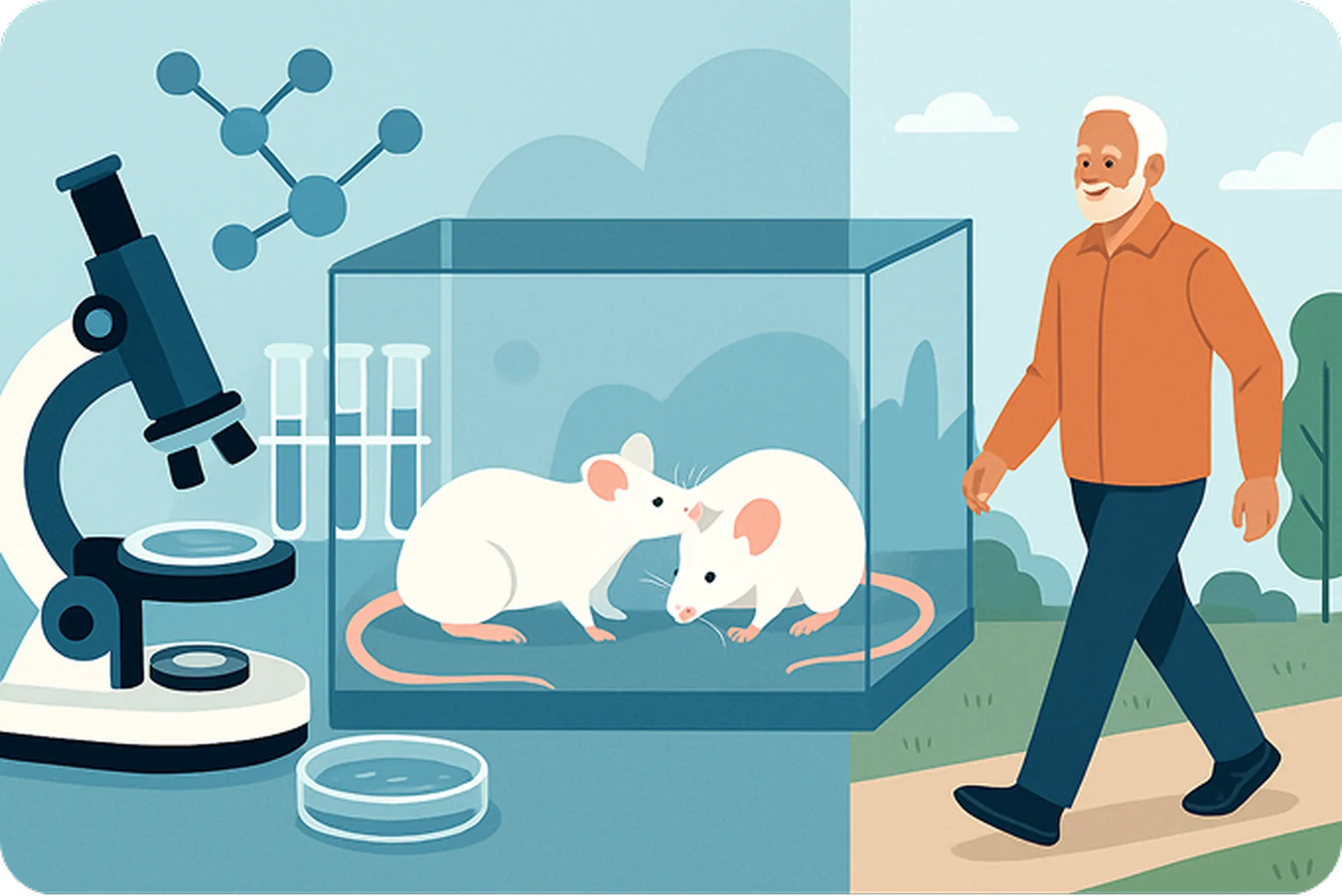
Early research on resveratrol was primarily conducted in laboratory settings using cell cultures and simple organisms like yeast and worms. These studies were crucial in establishing the basic mechanisms by which resveratrol exerts its effects, particularly its ability to activate sirtuins and mimic some aspects of caloric restriction. In these simple organisms, resveratrol consistently demonstrated the ability to extend lifespan, sometimes dramatically.
As research progressed to more complex organisms, including mice and other mammals, the results remained encouraging but became more nuanced. Studies in mice showed that resveratrol could improve various markers of health and longevity, particularly when the animals were fed high-fat diets. The compound appeared to protect against some of the negative effects of poor diet and helped maintain better metabolic health.
One of the most significant animal studies involved mice that were genetically predisposed to age rapidly. When these mice were given resveratrol, they showed improved physical performance, better organ function, and enhanced survival compared to untreated controls. These results suggested that resveratrol’s benefits might extend beyond simply preventing damage to actually improving overall physiological function.
However, translating these promising animal results to humans has proven more challenging. Human studies on resveratrol have shown mixed results, with some demonstrating clear benefits while others have found minimal effects. This variability may be due to several factors, including differences in dosing, study duration, participant characteristics, and the specific outcomes measured.
One of the challenges in human resveratrol research is bioavailability – the extent to which the compound is absorbed and utilized by the body. Resveratrol is rapidly metabolized by the liver, which can limit its availability to tissues. This has led researchers to explore different formulations and delivery methods to improve bioavailability.
Despite these challenges, several human studies have shown promising results. Some research has demonstrated improvements in markers of cardiovascular health, including better blood flow and improved cholesterol profiles. Other studies have found benefits for cognitive function, particularly in older adults.
The field of resveratrol research continues to evolve, with scientists working to better understand optimal dosing strategies, identify the populations most likely to benefit, and develop more effective delivery methods. Long-term studies are particularly needed to fully assess resveratrol’s potential for supporting healthy aging in humans.
How to Incorporate Resveratrol –Dietary Sources vs Supplementation

Dietary sources of resveratrol offer the advantage of providing the compound in its natural context, along with other beneficial compounds that may work synergistically. Red wine, the most famous source, contains not only resveratrol but also other polyphenols, flavonoids, and antioxidants that may contribute to its health benefits. However, the alcohol content of wine means that consumption must be moderate, and the resveratrol content can vary significantly between different wines.
Red and purple grapes, particularly the skins, are excellent sources of resveratrol without the alcohol content of wine. Eating grapes with the skins provides not only resveratrol but also fiber, vitamins, and other beneficial plant compounds. Grape juice made from red or purple grapes can also provide resveratrol, though the concentration is typically lower than in wine.
Berries, while containing lower concentrations of resveratrol than grapes, offer the advantage of being rich in many other antioxidants and beneficial compounds. Blueberries, cranberries, and other dark berries can be easily incorporated into daily meals and provide a wide range of health benefits beyond their resveratrol content.
Peanuts and peanut products provide another dietary source of resveratrol, particularly in the red skins. However, the concentration is relatively low, and significant amounts of peanuts would need to be consumed to achieve meaningful resveratrol intake.
For those seeking higher concentrations of resveratrol, dietary supplements offer a more practical approach. Supplements can provide standardized amounts of resveratrol, making it easier to achieve consistent intake. Most resveratrol supplements are derived from Japanese knotweed, which provides a concentrated source of the compound.
When considering resveratrol supplements, several factors should be taken into account. The form of resveratrol (trans vs. cis) is important, with trans-resveratrol being the more active form. The purity of the supplement and the presence of other compounds can also affect its effectiveness.
Some supplements combine resveratrol with other compounds that may enhance its absorption or provide complementary benefits. For example, some formulations include piperine (from black pepper) to improve bioavailability, or other polyphenols to provide synergistic effects.
The timing of resveratrol intake may also be important. Some research suggests that taking resveratrol with meals may improve absorption, while other studies indicate that taking it on an empty stomach might be more effective. The optimal timing may depend on individual factors and the specific formulation used.
It’s worth noting that resveratrol supplements are not regulated as strictly as medications, so quality can vary between manufacturers. Looking for third-party testing, good manufacturing practices, and reputable brands can help ensure product quality and safety.
Conclusion – Resveratrol as a Promising Longevity Ally
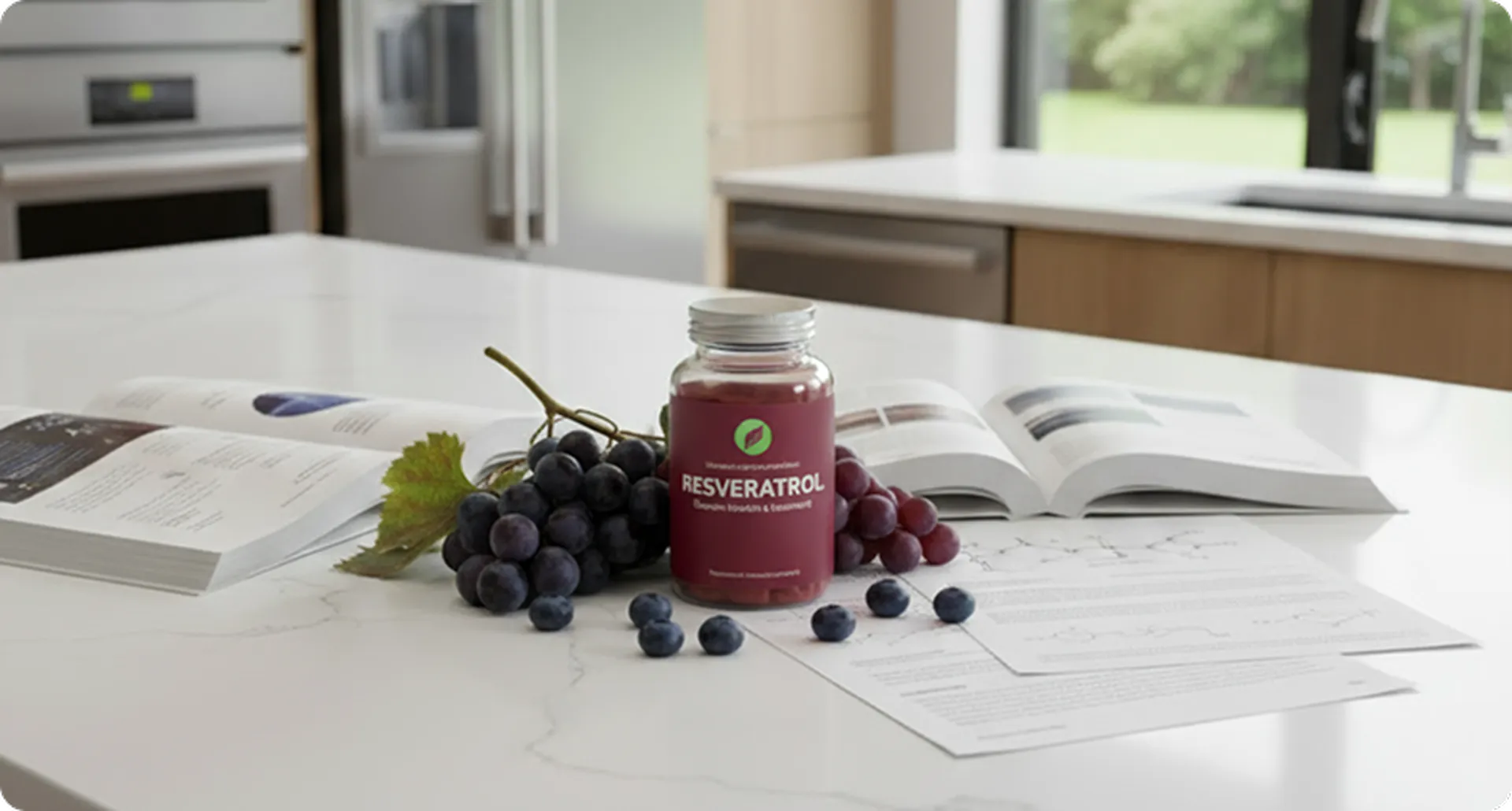
The scientific evidence supporting resveratrol’s potential benefits is substantial, though still evolving. Its ability to activate sirtuins, support cellular energy production, provide antioxidant protection, and potentially mimic some aspects of caloric restriction makes it a compelling candidate for supporting healthy aging. The compound’s effects on cardiovascular health, cognitive function, and overall cellular wellness further add to its appeal.
However, it’s important to maintain realistic expectations about what resveratrol can and cannot do. While the research is promising, resveratrol is not a magic bullet for aging or a substitute for a healthy lifestyle. The most significant benefits are likely to come from combining resveratrol supplementation with other healthy lifestyle practices, including a balanced diet, regular exercise, adequate sleep, and stress management.
The field of resveratrol research continues to advance, with scientists working to better understand optimal dosing, improve bioavailability, and identify the populations most likely to benefit. As our understanding of this compound deepens, we may discover new applications and more effective ways to harness its potential.
For those considering incorporating resveratrol into their wellness routine, whether through dietary sources or supplements, it’s advisable to consult with healthcare providers, especially if there are existing health conditions or medications involved. Like any bioactive compound, resveratrol can interact with certain medications and may not be appropriate for everyone.
Ultimately, resveratrol represents our growing understanding of how specific nutrients can influence the aging process at the cellular level. As part of a comprehensive approach to healthy aging, this “wine molecule” may indeed have a role to play in supporting longevity and vitality. The journey of discovery continues, and the future may hold even more insights into how we can harness the power of this remarkable compound to support our quest for healthier, more vibrant aging.
Whether obtained from a glass of red wine, a handful of grapes, or a carefully chosen supplement, resveratrol offers a fascinating glimpse into the intersection of nutrition, cellular biology, and the science of aging. As research continues to unfold, we can look forward to an even deeper understanding of how this ancient plant compound might contribute to our modern pursuit of healthy longevity.
Top Rated Longevity Supplement
100% Natural Resveratrol - 1000mg Per Serving
Max Strength (180 Capsules)
9.9

- Supports overall wellness by protecting cells from oxidative stress
- Promotes healthy aging and cardiovascular health
- Helps maintain optimal vitality with powerful antioxidants
- 1000mg per serving max strength formula
- 180 capsules for long-lasting supply
Show more
- Supports overall wellness by protecting cells from oxidative stress
- Promotes healthy aging and cardiovascular health
- Helps maintain optimal vitality with powerful antioxidants
- 1000mg per serving max strength formula
- 180 capsules for long-lasting supply
Picked by ... people today
